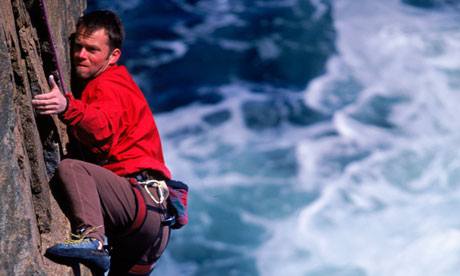
By Tracey Bedford
Leisure probably isn't the first thing that comes to mind when you think about addressing the sustainability of lifestyles. But in fact a surprising 27% of the greenhouse gas emissions from the average UK household can be attributed to leisure practices. At the same time some of the more imaginative discussions about how we are to live revolve around the subject, starting wi th simple questions about whether our well-being would be increased if we had greater access to the countryside and green space, or if our communities would be improved if we spent less time in front of the television and more in civic engagement. It also covers more profound questions such as whether we should have lower working hours and more leisure time in a post-growth future.
One of these debates involves discussions about how we could spend our time in more meaningful ways, in particular ways which are not so focused on economic activity and living productive lives. Rather than "spending" or "wasting" time on leisure activities, time could be enjoyably passed engaged in non-materialistic, time-consuming hobbies and leisure practices which people find fulfilling. Especially those that give the person a sense of meaning and achievement outside of their work career and income, such as playing a musical instrument or rock climbing.
In Resolve we looked at the role some of these more intrinsically meaningful leisure practices and hobbies played in the lives of middle earners. Were they sustainable? Well, there were large differences in the travel and equipment involved in different pastimes. Some, such as playing bridge, required few resources. However, we also saw leisure practices which had been local and less materialistic but now had high levels of equipment and travel. A good example of this was given by a birdwatcher who explained that what had started out as a fairly cheap, local nature-based hobby now required expensive telescopes, cameras and waterproofs. A dedicated pager system quickly alerts twitchers to rare birds spotted across the country with people travelling long distances to see the bird before it flies off. The fact of the matter is specialist equipment that provides the hobbyist with more competency at their chosen hobby or makes them more comfortable when performing it is very appealing to people. Activities that could be local instead rack up travel as people look for new, interesting and beautiful places to engage in their hobby.
This raises the question: if we all opted to spend more time engaged in local, non-materialistic and intrinsically meaningful leisure activities how would the market respond? In an economy based on constant growth, could those sustainable leisure practices resist market innovations that help the practitioner to be more competent, comfortable and aware of the potential to travel to more exciting locations? Won't businesses always look to commodify new areas of everyday life and leisure?
Of course one possible solution would be to invest in forms of production that de-couple economic growth from resource use and carbon emissions. These could allow for higher levels of leisure equipment and travel without the corresponding environmental impacts. Rising fuel prices and carbon taxes should help to encourage these business transitions, but might the higher costs involved also reduce the ability to consume them?
We followed our leisure participants throughout the recession, as rising fuel prices increased living costs. Those with low levels of disposable income reduced their leisure travel, went for nights out less frequently and watched more television. Environmentally, if not equitably, this could be viewed as a good thing. Yet we also saw some people become constrained in their ability to engage in their hobbies and leisure practices, losing important elements of their lives as they found less money and time to spend on intrinsically meaningful activities. In inadvertently pricing out some of those aspects of lifestyles that could offer a challenge to productive, materialistic lives, are we choosing the best route to sustainability?
The intention here is not to point to the inherent difficulties and contradictions involved in thinking about sustainable leisure solutions. Instead I want to highlight the fact that there are a range of discussions to be had about what we mean by sustainable lifestyles. Leisure is probably the lifestyle area that is least discussed, yet it is also the place where we are most obviously involved in questions and dreams about what sustainable lives might look like. Some of those questions and dreams would challenge the way we work, play and do business. Perhaps they are all the more meaningful for that?
Article courtesy of guardian.co.uk

